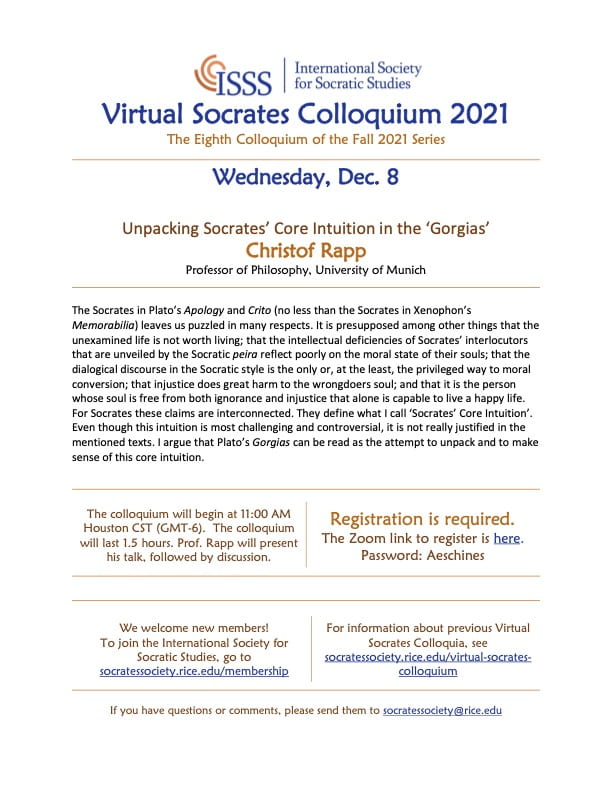Christof Rapp:Unpacking Socrates’ Core Intuition in the ‘Gorgias’
The Socrates in Plato’s Apology and Crito (no less than the Socrates in Xenophon’s Memorabilia) leaves us puzzled in many respects. It is presupposed among other things that the unexamined life is not worth living; that the intellectual deficiencies of Socrates’ interlocutors that are unveiled by the Socratic peira reflect poorly on the moral state of their souls; that the dialogical discourse in the Socratic style is the only or, at the least, the privileged way to moral conversion; that injustice does great harm to the wrongdoers soul; and that it is the person whose soul is free from both ignorance and injustice that alone is capable to live a happy life. For Socrates these claims are interconnected. They define what I call ‘Socrates’ Core Intuition’. Even though this intuition is most challenging and controversial, it is not really justified in the mentioned texts. I argue that Plato’s Gorgias can be read as the attempt to unpack and to make sense of this core intuition.
